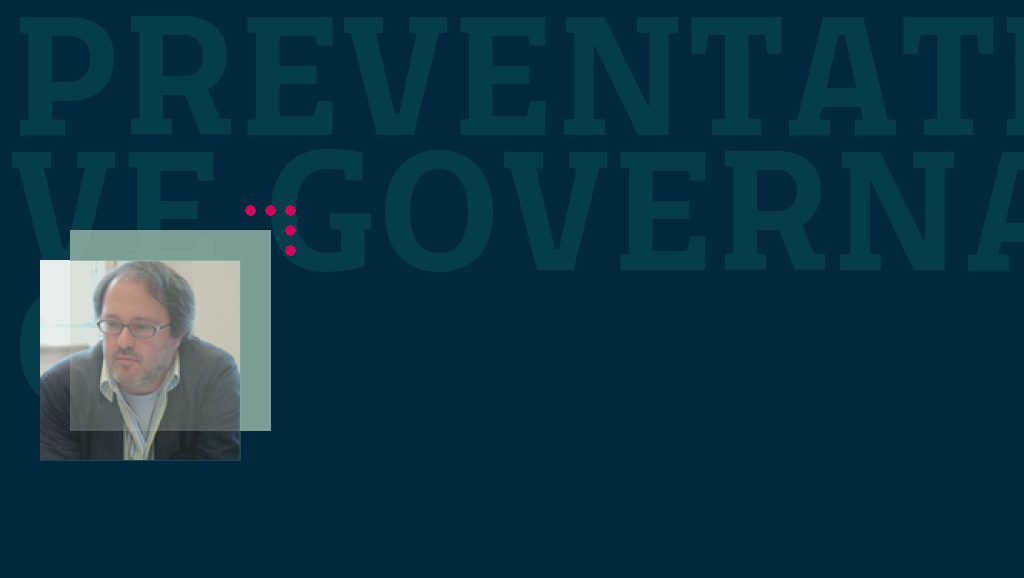On Wednesday 7th July, Professor David Guston of the Arizona State University presented the work of the CSPO (Consortium for Science, Policy and Outcomes) and the CSN-ASU (Center for Nanotechnology in Society at Arizona State University) at an invitation seminar held here at the Bassetti Foundation. Amongst the participants were Ottavia Bassetti, Piero Bassetti, Oscar Biffi (University of Bergamo), Giuseppe Caravita (Nova/Il Sole 24 Ore), Tommaso Correale Santacroce, Cristina Grasseni, Mario Salerno (Milan Polytechnic), Paolo Zanenga (PDMA).
The CSPO is a network of individuals and institutions whose objectives are to construct a community of academics and professionals, to educate students and business people and to cultivate public debate and promote responsibility for political decision makers. The center is composed of 12 senior lecturers, 9 professional staff members, 4 researchers or faculty lecturers, 4 post doctoral researchers and 49 undergraduate and post graduate students.
In particular the CSN-ASU has the following objectives: to conduct research into the social implications of nanotechnology, to create an academic community with a new understanding of the social dimensions of science and nano engineering (NSE), to involve the public, political decision makers, business people and NSE researchers in a dialogue about the objectives and implications of NSE and to collaborate with NSE laboratories in order to introduce greater reflexivity.
Guston believes that the CSPO should be an important long term resource for the transformation of scientific research and practical engineering through the integration of the social dimension present in the ASU (Arizona State University), but not only this. The center aims to create a global network of academics and professionals that share the mission of the CSPO and are informed about the perspective and technical analysis that it develops. Guston maintains that ‘the idea is to create a system in which we at least think about what we are doing. We are not talking about control, nor prediction, but of understanding and choice’.
As a sign of the interdependence between techno-science and social change, the CPSO tries to collaboratively integrate the points of view of scientists and engineers with those of the social dimension of innovation (ethics, law, politics, economics and environment). The work of the CSPO consists in facilitating the participation of a wider public and heterogeneous decision makers in the inherent themes of science and technology, while developing determinate capacities, amongst them anticipation, which aims to improve the individual and institutional ability to identify, evaluate and respond to scientific change as quickly as possible. Amongst the numerous strategies aimed at reaching this goal we have chosen to address below the more ‘use inspired’ themes of the debate.
The research programs are a responds to the following 6 questions:
1. Responsible innovation: how can we improve the decisions that individuals, organizations and governments take?
2. Adaptability and sustainability: how can we construct and maintain a good relationship with nature in order to respond to planet change?
3. Science, technology and global business: how can we evaluate, create and discuss the knowledge and technology systems that are necessary for a globalized world?
4. Technological systems and infrastructure: how can we understand and control the complex systems and structures that we construct?
5. Health and social justice: how can social wellbeing and justice become a central element for research, innovation and development?
6. Security and a common future: how can we create a shared sense of individual and collective security in a politically and technologically dynamic and culturally different world?
Guston explained the numerous degree programs, courses, promotional and awareness programs and the main research projects developed. In particular he discussed the necessity of building new capabilities for understanding and governing the potential of nanotechnology using preventative governance, real time technological evaluation and thematic research groups. Preventative governance is proposed as a strategic vision, not as a form of governance. It involves activities aimed at training, foreseeing, co-involvement, integration and informing and diffusion.
——————–
Slide by David Guston:
——————-
Some photos from the seminar:




































